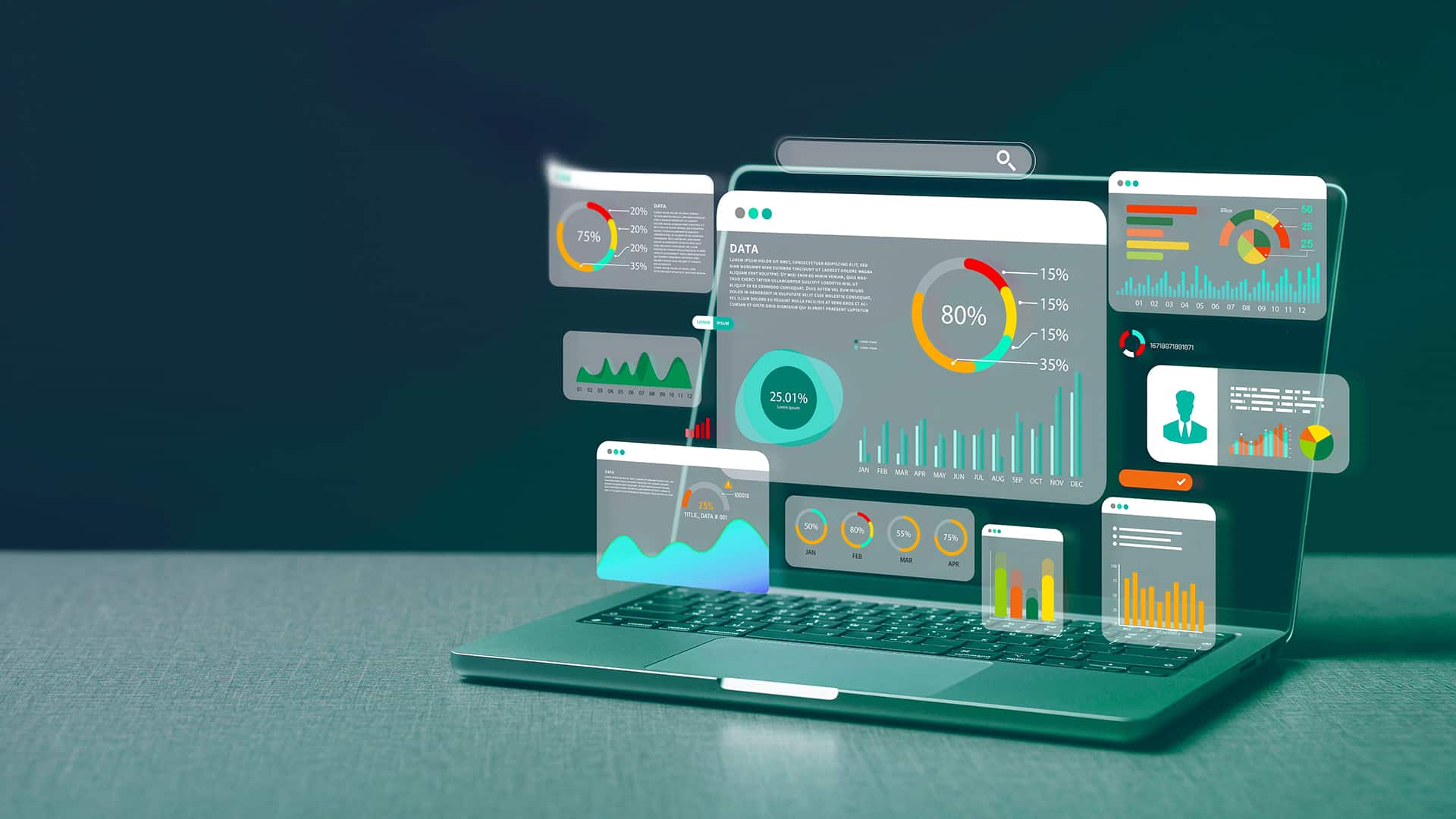Predictive Analytics: Anticipating Customer Needs and Market Trends
Imagine a world where you know what your customers want before they even do. A world where you can predict market shifts with confidence and adapt your strategies proactively. This isn’t science fiction; it’s the power of predictive analytics. Predictive analytics uses data, statistical algorithms, and machine learning techniques to predict future outcomes. It’s like having a crystal ball for your business, allowing you to make informed decisions, optimize your operations, and create remarkable customer experiences.
In marketing, predictive analytics is a game-changer. It helps you understand your customers better, target your campaigns more effectively, and personalize your messages with precision. It’s about anticipating needs, not just reacting to them.
In this blog post, we’ll explore how AI-powered predictive analytics can revolutionize your marketing strategies and help you stay ahead of the curve.
AI-Powered Predictive Analytics in Marketing
AI is injecting new power into predictive analytics, making it more sophisticated and accessible than ever before. Through the power of AI, marketers can analyze data and gain insights into customer behavior, preferences, and trends, enabling them to make informed decisions and optimize their strategies. Here’s how it’s transforming marketing:
Customer Segmentation and Targeting
AI can analyze vast amounts of customer data to identify meaningful segments with shared characteristics and needs. This allows you to personalize your marketing messages and offers, delivering the right content to the right people at the right time. Imagine sending a special offer to customers who are likely to be interested in a new product launch, or tailoring your website content to the specific preferences of different visitor segments. AI makes this level of personalization possible.
For example, a fashion retailer could use AI to segment customers based on their past purchase history, browsing behavior, and demographics. The retailer could then create targeted marketing campaigns for each segment, such as sending personalized email recommendations for new arrivals that match individual styles or offering exclusive discounts on items that align with specific customer preferences. This level of granularity in customer segmentation enables businesses to optimize their marketing spend, increase conversion rates, and build stronger customer relationships.
Demand Forecasting and Inventory Management
Predicting future demand is a challenge for any business. AI can analyze historical data, market trends, and even social media sentiment to forecast demand for your products or services. This helps you optimize inventory levels, prevent stockouts, and avoid overstocking. AI can also alert you to emerging trends, allowing you to proactively adjust your marketing strategies and stay ahead of the competition.
Imagine a grocery store chain using AI to predict demand for certain products based on factors like weather patterns, upcoming holidays, and social media trends. The AI model could analyze historical sales data, local events, and even competitor promotions to forecast which products are likely to be in high demand. This allows the store to optimize inventory levels, ensuring they have enough stock of popular items while minimizing waste on products that may not sell as quickly. By accurately predicting demand, businesses can improve their operational efficiency, reduce costs, and enhance customer satisfaction by ensuring product availability.
Predictive Lead Scoring and Qualification
Not all leads are created equal. AI can analyze lead data, such as demographics, behavior, and engagement patterns, to predict the likelihood of conversion. This allows you to prioritize your sales efforts, focusing on the leads with the highest potential. AI can also help you nurture leads with personalized content and offers, guiding them through the sales funnel and improving conversion rates.
For instance, a software company could use AI to score leads based on their engagement with website content, email marketing campaigns, and social media interactions. By analyzing these data points, the AI model can identify leads that are actively researching the company’s products or services and showing a strong interest in making a purchase. This allows the sales team to prioritize these high-potential leads, increasing the efficiency of their outreach efforts and improving the chances of closing deals. AI-powered lead scoring can also help businesses identify leads that may require additional nurturing or those that are unlikely to convert, allowing for a more targeted and effective sales strategy.
Benefits of Predictive Analytics in Marketing
The benefits of AI-powered predictive analytics in marketing are numerous, ranging from improved decision-making and increased efficiency to enhanced customer experiences and a greater return on investment. By leveraging AI to analyze data and predict future outcomes, businesses can gain a significant competitive advantage and drive remarkable growth.
Improved Decision-Making
With AI-powered insights, you can make more informed decisions about your marketing strategies. You can identify the most effective channels, optimize your budget allocation, and allocate your resources strategically.
For example, an e-commerce business could use AI to analyze the performance of their marketing campaigns across different channels, such as social media, email, and search engine marketing. The AI model could identify which channels are generating the most leads and conversions, allowing the business to allocate their marketing budget more effectively. This data-driven approach to decision-making helps businesses optimize their marketing spend and maximize their return on investment.
Increased Efficiency and ROI
AI can automate repetitive tasks, optimize campaigns in real-time, and improve the overall efficiency of your marketing operations. This leads to a higher return on investment (ROI) as you generate more leads, convert more customers, and reduce wasted resources.
Imagine a marketing team using AI to automate the process of creating and scheduling social media posts. The AI tool could analyze the best times to post, suggest relevant content, and even generate captions and hashtags, saving the team significant time and effort. This automation allows marketers to focus on more strategic tasks, such as content strategy and campaign planning, leading to increased productivity and better results.
Enhanced Customer Experiences
AI enables you to personalize customer interactions, anticipate their needs, and deliver more relevant and engaging experiences. This builds stronger customer relationships, increases loyalty, and drives positive word-of-mouth marketing.
For example, a streaming service could use AI to analyze user preferences and viewing history to provide personalized recommendations. This not only enhances the user experience but also increases engagement and reduces churn. By understanding individual preferences, businesses can tailor their marketing messages and offers, making customers feel valued and understood.
Implementing Predictive Analytics in Your Marketing Strategy
Ready to harness the power of predictive analytics and transform your marketing strategy? It’s easier than you might think. Here’s how to get started with implementing AI-powered predictive analytics to anticipate customer needs, optimize your campaigns, and achieve remarkable results.
- Data is Key: The foundation of predictive analytics is high-quality data. Ensure you have clean, accurate, and relevant data to train your AI models and generate reliable predictions.
- Choose the Right AI Tools: There are various AI tools and technologies available for predictive analytics. Choose the ones that best fit your needs and integrate with your existing marketing systems.
- Start with Small Steps: Don’t try to do everything at once. Start with a pilot project or a specific use case to test and validate the benefits of predictive analytics before scaling up.
Cogya’s AI Transformation Service can guide you through this process, helping you identify the right AI tools, implement them effectively, and leverage predictive analytics to achieve your marketing goals.
Conclusion
AI-powered predictive analytics is no longer a luxury; it’s a necessity for businesses that want to thrive in today’s competitive landscape. By anticipating customer needs and market trends, you can make better decisions, optimize your marketing efforts, and create exceptional customer experiences.
The future of marketing is predictive, and AI is leading the way. Embrace the power of AI-powered predictive analytics and unlock new levels of success for your business.
Contact Cogya today to explore how our AI solutions can transform your marketing strategies and help you achieve your business goals.







